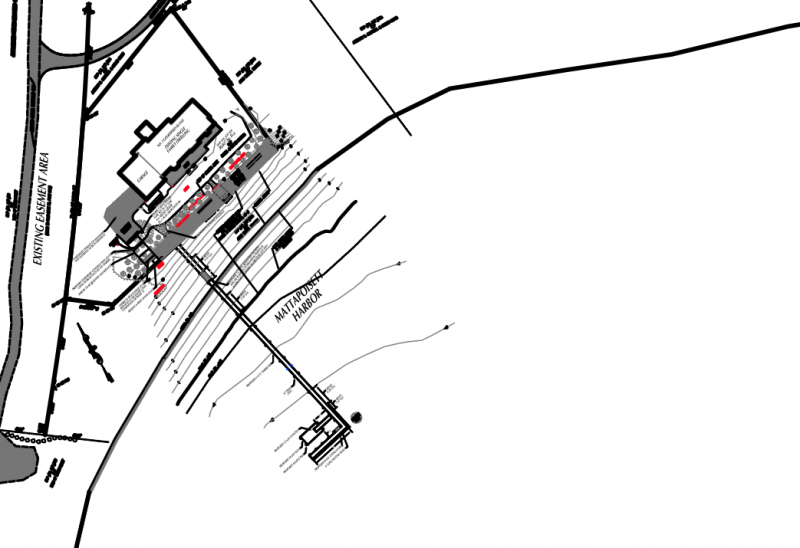Court agrees with Mattapoisett officials on contentious pier project
More than a year ago, Dave and Laurie DaRosa's appeal for a building permit on their proposed 290-foot pier was denied. On Sept. 19, Plymouth County Superior Court Judge Raymond Veary Jr. upheld the town's decision.
The pier is designed to begin on the DaRosas' land at 3 Goodspeed Island and continue on an adjacent waterfront property through an easement, eventually ending in Mattapoisett Harbor with a 45-foot L-shaped stretch that is parallel to the shore.
Building Commissioner Andy Bobola denied the couple's application last year, in part, because the waterfront lot between the DaRosa's property and the water has no buildings on it. According to town bylaws, a structure that falls under the “accessory use” category must have a primary use structure, such as a house, on the land.
After Bobola's decision, the DaRosa's and their lawyer, John Gushue, appealed it to the Zoning Board of Appeals.
In a hearing held on August 2015, Gushue told the Zoning Board that to deny the permit would be to interpret the bylaws differently than they had before.
He intimated that Bobola may have had other reasons for denying the permit and said there was “much organized opposition even within Town Hall,” to the pier.
The DaRosas' project has come upon numerous hurdles, from the Conservation Commission citing environmental concerns to residents who said the pier would interfere with public use of the harbor.
Bobola, however, maintained that Gushue's suggestion was “ludicrous,” and there has only been one interpretation of the bylaw regarding accessory uses.
Judge Veary agreed. The court's decision states that the Zoning Board's denial is “appropriately supported” by the bylaw.
It states: “The requirement is clear enough: an accessory structure, such as the DaRosas' proposed pier (or wharf) must be on the very same lot as the main building to which it is intended to be [attached].”
The statement further explains that majority of the pier won't even be on the DaRosas' property and that the easement has no development on it at all, which goes against the town's bylaw.
Additionally, the court document states that such issues are best left to the town: “Wading further into the marsh of similarities and distinctions in the context of a local zoning bylaw is a matter of which a local board is much better suited than the court.”
Gushue said his clients have not decided if they will appeal the decision. They have 30 day to file an appeal.
While the DaRosas have not had much success with the town, they have received permits from the Army Corps of Engineers and the Department of Environmental Protection Waterways concerning the pier's environmental impact.
Additionally, in September 2015, the Massachusetts DEP approved a wetlands permit for the structure that was previously denied by the Conservation Commission.












